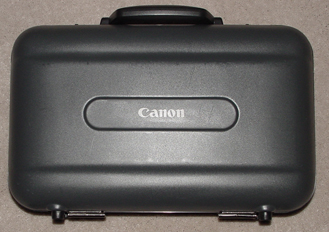
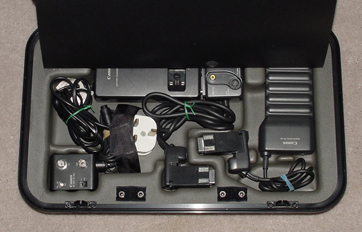
1991 R


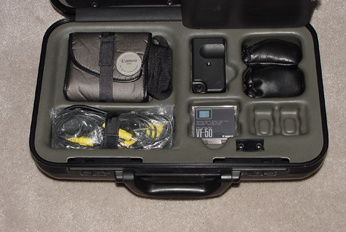
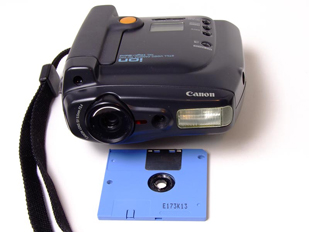
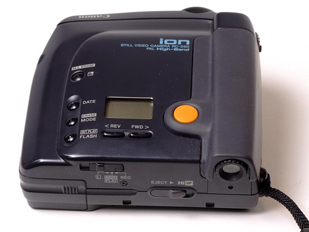
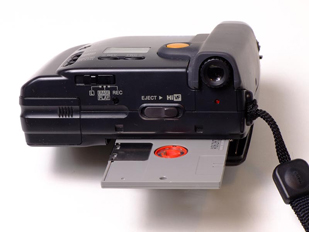
![]()
CANON RC-260
- 1991.
Hi-band still video camera. For export only (not for Japanese market).
The RC-260 was a full-feature (record / playback / erasure) still video
camera. It had a 1/2 inch 230,000 pixel CCD image sensor, recording and
playback with horizontal resolution of 320 TV lines. In addition to the
camera, the kit included the BA-24P charger, PP-A8 power pack, RF-302E
RF unit, TA-C26 tripod adapter, TC-C2670 tele converter lens, WC-C2635
wide converter lens, VF-50 video floppy disks, various cables, manual,
and a molded hard case. MSRP was about $1,700. (Rare on U.S. eBay)
http://camera-wiki.org/wiki/Canon_RC-260
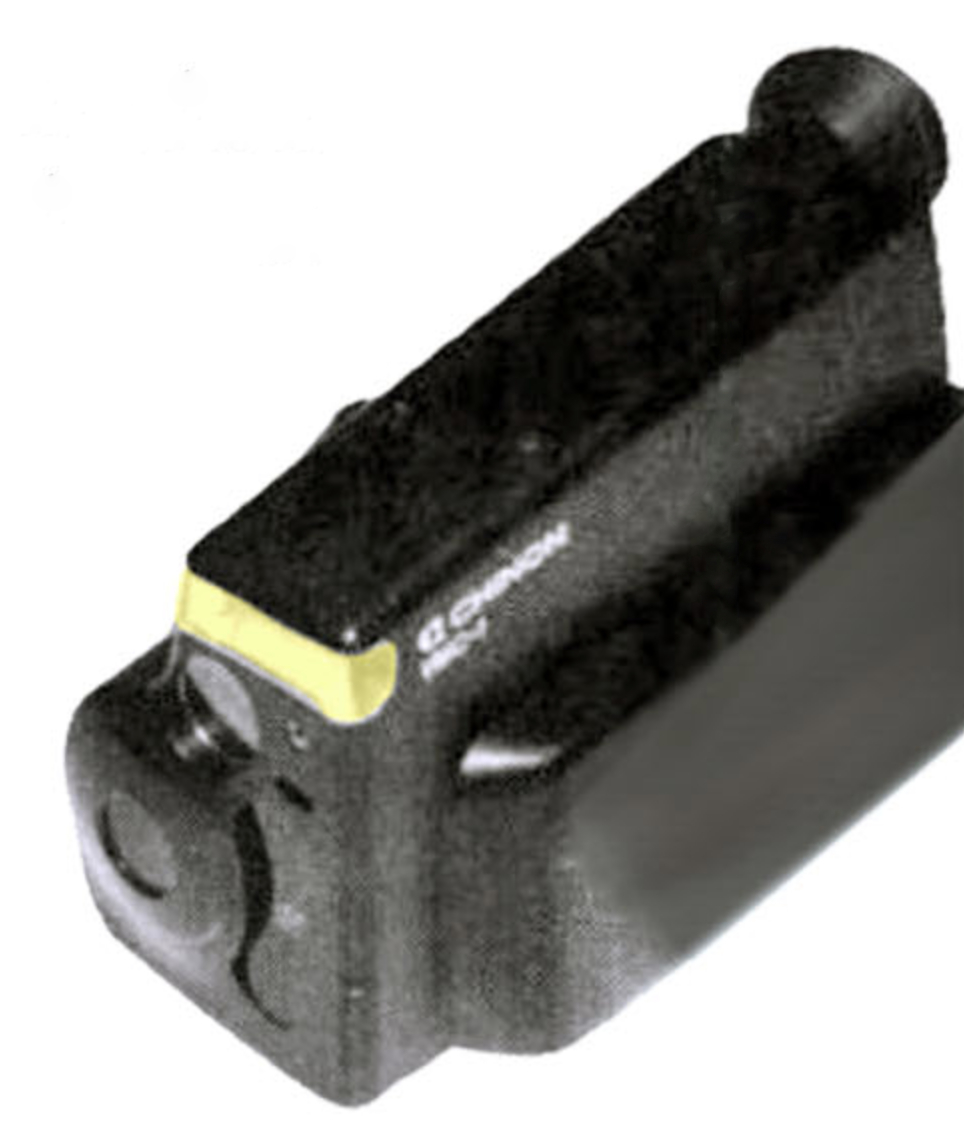
CHINON
VMC-1 - 1991. Prototype. Multi-zone autofocus,
electronic zoom memory card camera. Up to 30 images per card. Popular
Photography. January 1991. p55. NOT MARKETED.
https://www.digicammuseum.de/gechichten/erfahrungsberichte/logi-fotoman-pixtura-iichinon/
https://www.digitalkameramuseum.de/en/prototypes-rarities/category/chinon-5
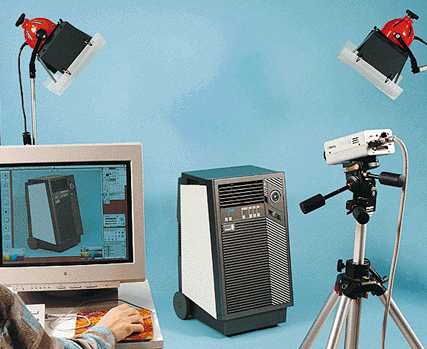
CROSFIELD
CELSIS-130 and 160 - 1991.
Examples
of professional studio model digicams. The Celsis-160 used a Fuji
HC-1000 base, and had a fixed resolution of 1,280 x 960 pixels. The
Celsis-130 used a Krontron unit base and had a resolution of 3072 x
2320
pixels. They used three CCDs. In this case,
each
CCD had a single dye to gather the requisite color information.
This
kind of camera is best suited for studio photography. Because the
light must hit three CCDs, it must be split into three beams, which
results
in a lower intensity of light for each beam. This, in turn, means
that the camera will be less able to handle lower-than-optimal lighting
conditions and will require longer exposure times. The three-CCD design
also tends to significanlty increase the cost of the camera.
http://www.caffnib.co.uk/xfld_gloss.html
https://silo.tips/download/digital-image-file-formats-tiff-jpeg-jpeg2000-raw-and-dng
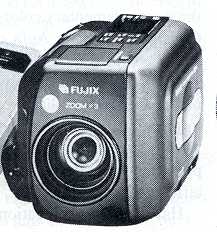
FUJI
DS-H1 - 1991. Digital memory card camera. F/2 3X zoom
lens.
Shutter 1/800 second. Up to 20 image per card.
400 line resolution. Popular Photography. January
1991.
p55. NOT MARKETED.
https://www.digitalkameramuseum.de/en/prototypes-rarities/item/fujix-ds-h1-prototype
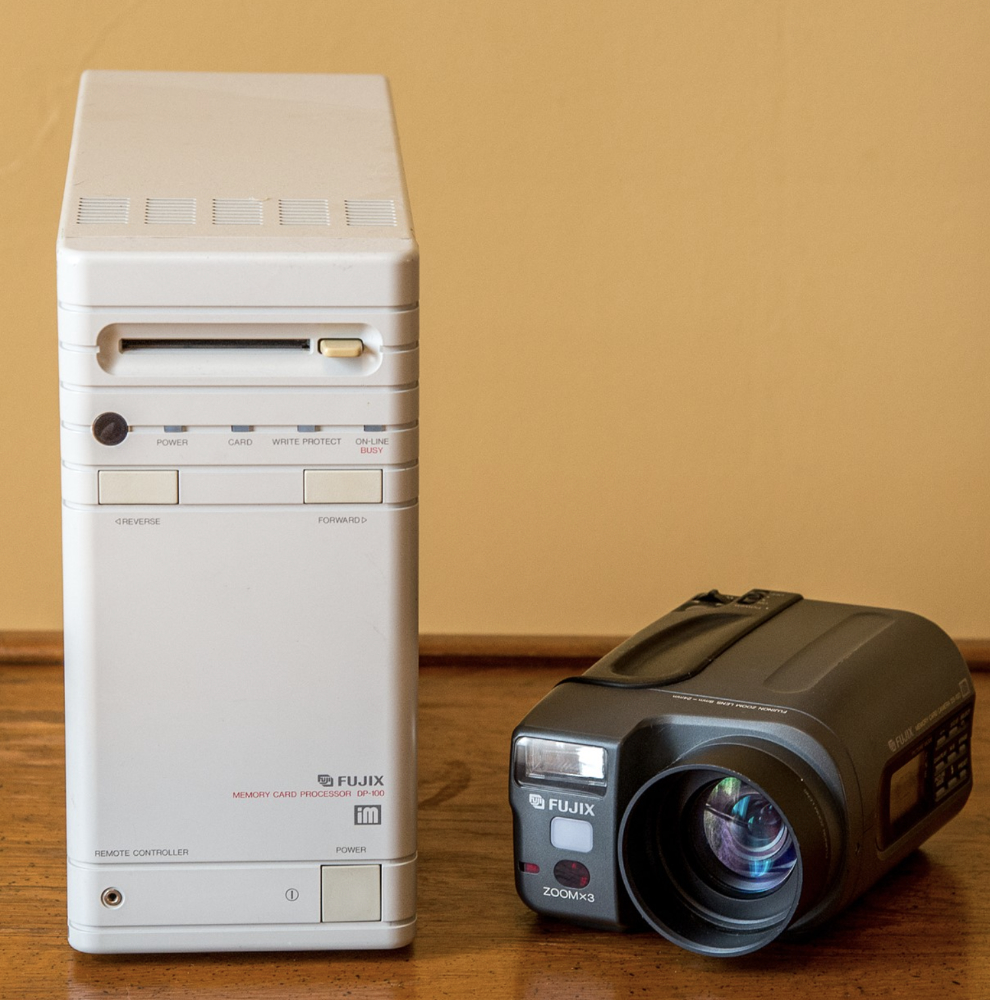
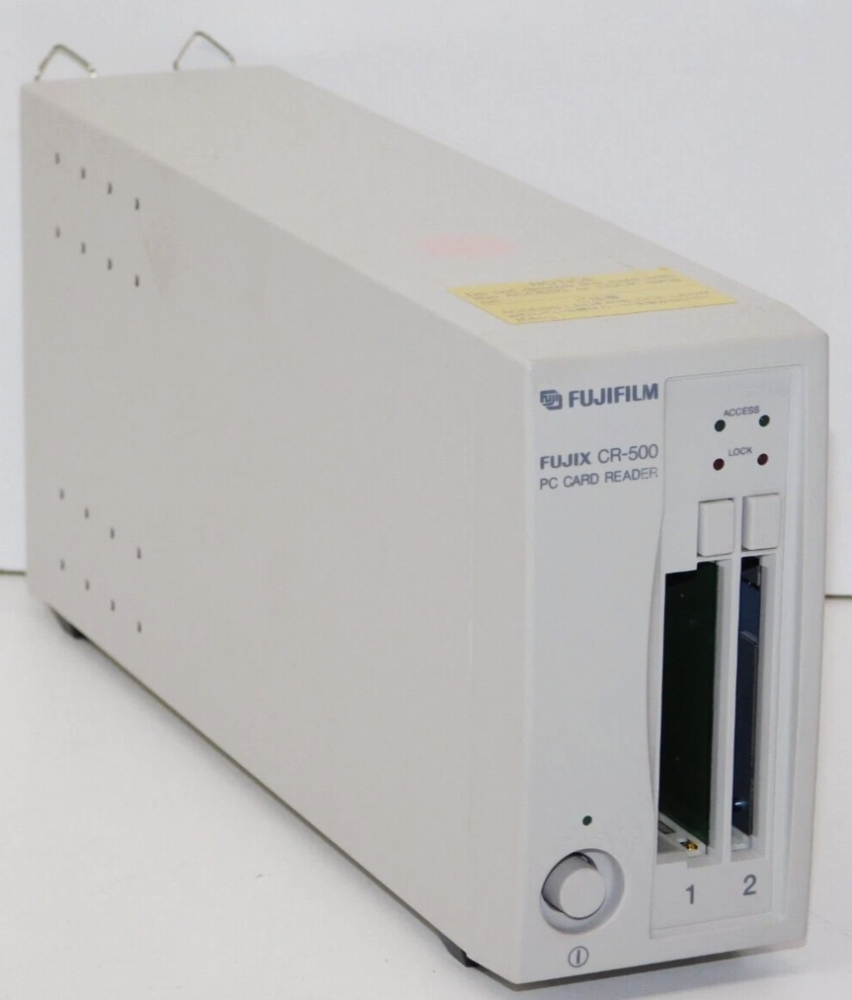
DP-100 Memory Card
Processor
CR-500 Memory Card Drive
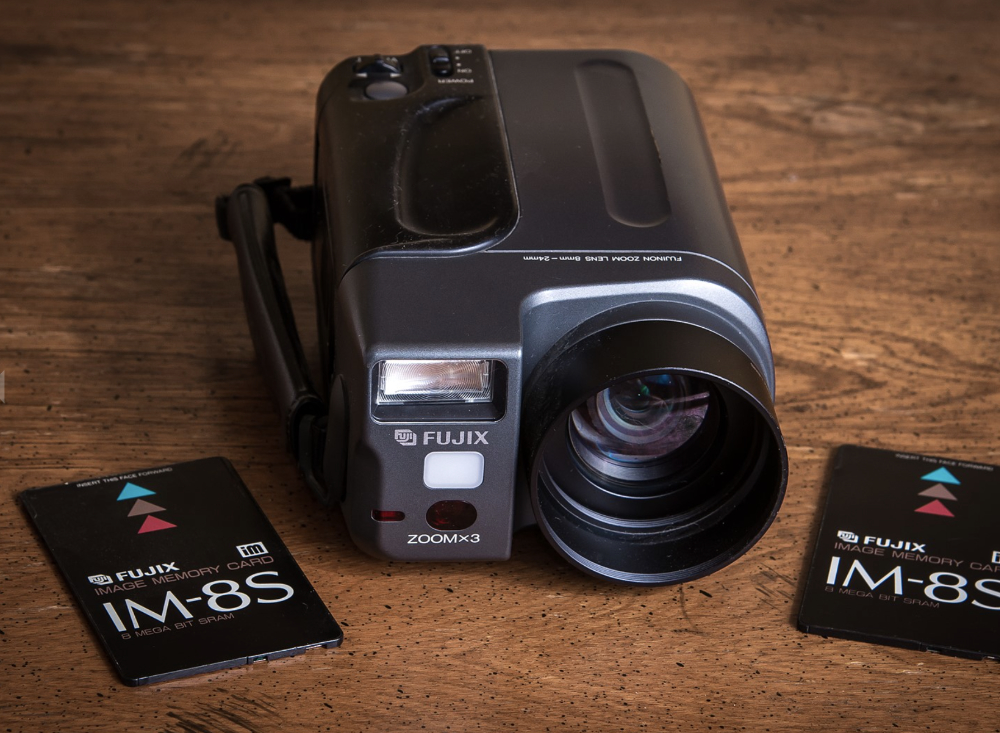

FUJI
DS-100 - 1991.
Digital memory card
camera.
1/2-inch, 390K pixel CCD. 8-24mm (first digicam with 3-power
zoom) f/2 power zoom lens. ISO
100.
Shutter 1/4 to 1/749 second. Built-in flash, auto white balance,
autofocus, video output. Price, about $5,000. Fuji sold a
$2500
dedicated card drive for the Fuji DS-100 (CR-500) that provided a
front-panel slot for the
camera's memory card (HG-15) as well as a DP-100 card processor that
worked with IBM PC and Macintosh by way of a SCSI cable. Owners
of the Fuji DS-100 memory card camera were required to purchase the
CR-500 card reader (above right) in order to read the HG-15 memory
card. The $360 HG-15 memory card could store 5 of the DS-100's 390K
pixel images at full resolution or 21 at lower resolution. The size of a large hardcover dictionary,
the
DS-100 Memory Card Processor connected to the Mac's SCSI port, a system
that yielded faster image transfers than the serial connections used by
most other cameras at the time. The DS-100 included a transfer
utility
as well as an Adobe PhotoShop plug-in module that imported images using
PhotoShop Acquire command. The DS-100 also had output jacks for
RGB, composite, and S-Video. Popular Photography.
December
1991. p111.
https://www.digitalkameramuseum.de/en/cameras/item/fujix-ds-100
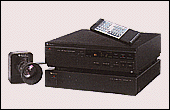

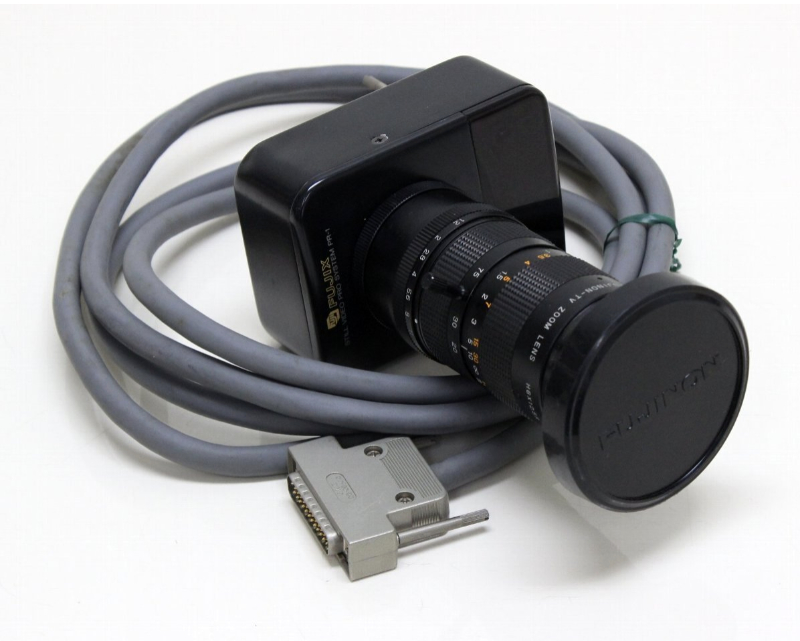
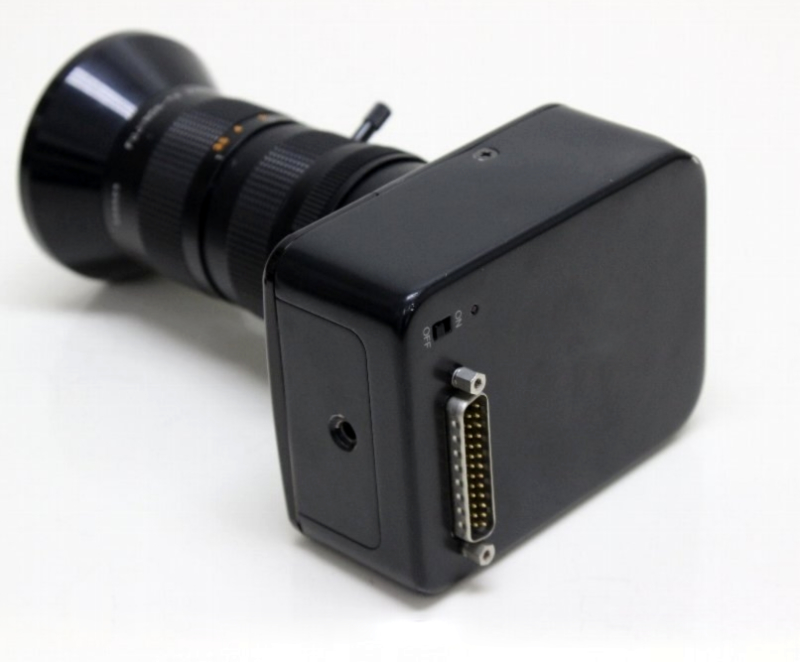
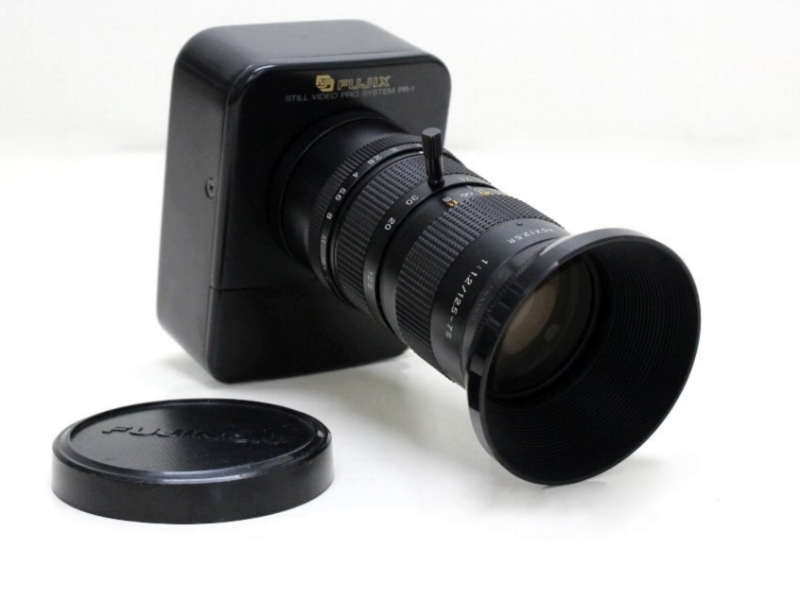
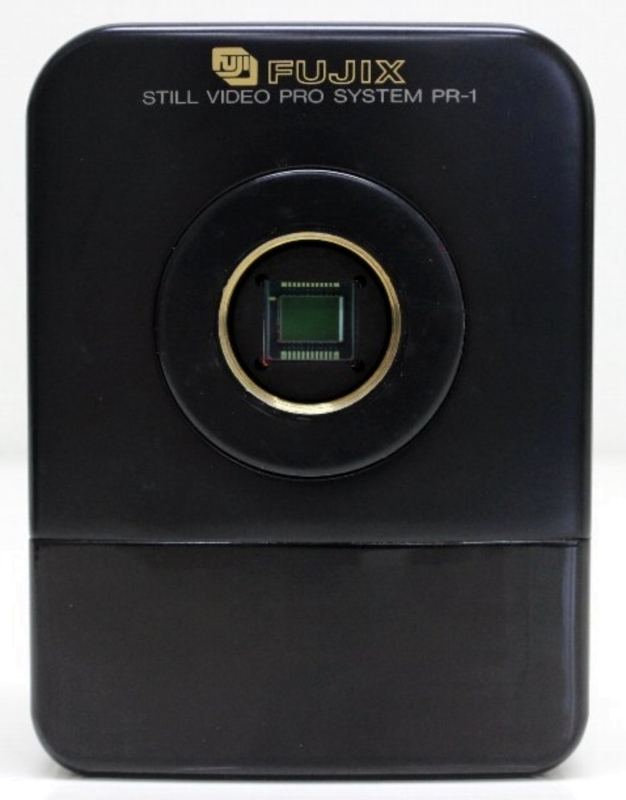
FUJI(X) PR-1, PR-1H, PR-2, PR-2J
- 1991. Fuji
called it their still video pro system. It consisted of a camera
head, a still video player/recorder, control section, and remote
control (RM-5000). Thanks to Mr. Matsumo for identifying what was
an unknown camera to us back in 2002 when it appeared on an Asahi web
site page. These latest photos are from a seller on a Japanese
web site similar to eBay. The PR-1 camera may be seen on eBay
from time to time, but usually just the camera without the other
components needed to operate the camera.
https://www.digitalkameramuseum.de/en/esvc/item/fujix-pr-1
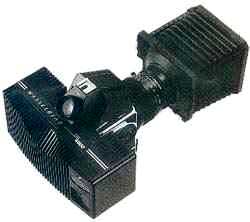
HASSELBLAD
DB 4000 - 1991. Example of
professional
model digital studio camera that used a digital back attached to a
standard
film camera. The professional model Hasselblad DB 4000 was a
Hasselblad
motorized model 553ELX film camera combined with a Leaf digital
back.
ISO 300, 1/125 to 1 second. 2048 x 2048 pixel CCD. 14-bit
capture
per color channel, 8-bit storage. The Leaf back fit the body of
the
Hasselblad in place of a film magazine and used a SCSI 2 interface to
Apple
Macintosh/Quadra computers. The DB 4000 is typical of numerous
professional
model digital cameras that combine high-quality film camera fronts with
various brands of professional digital backs. Digital Studio
Cameras.
February 20, 1993. p7.
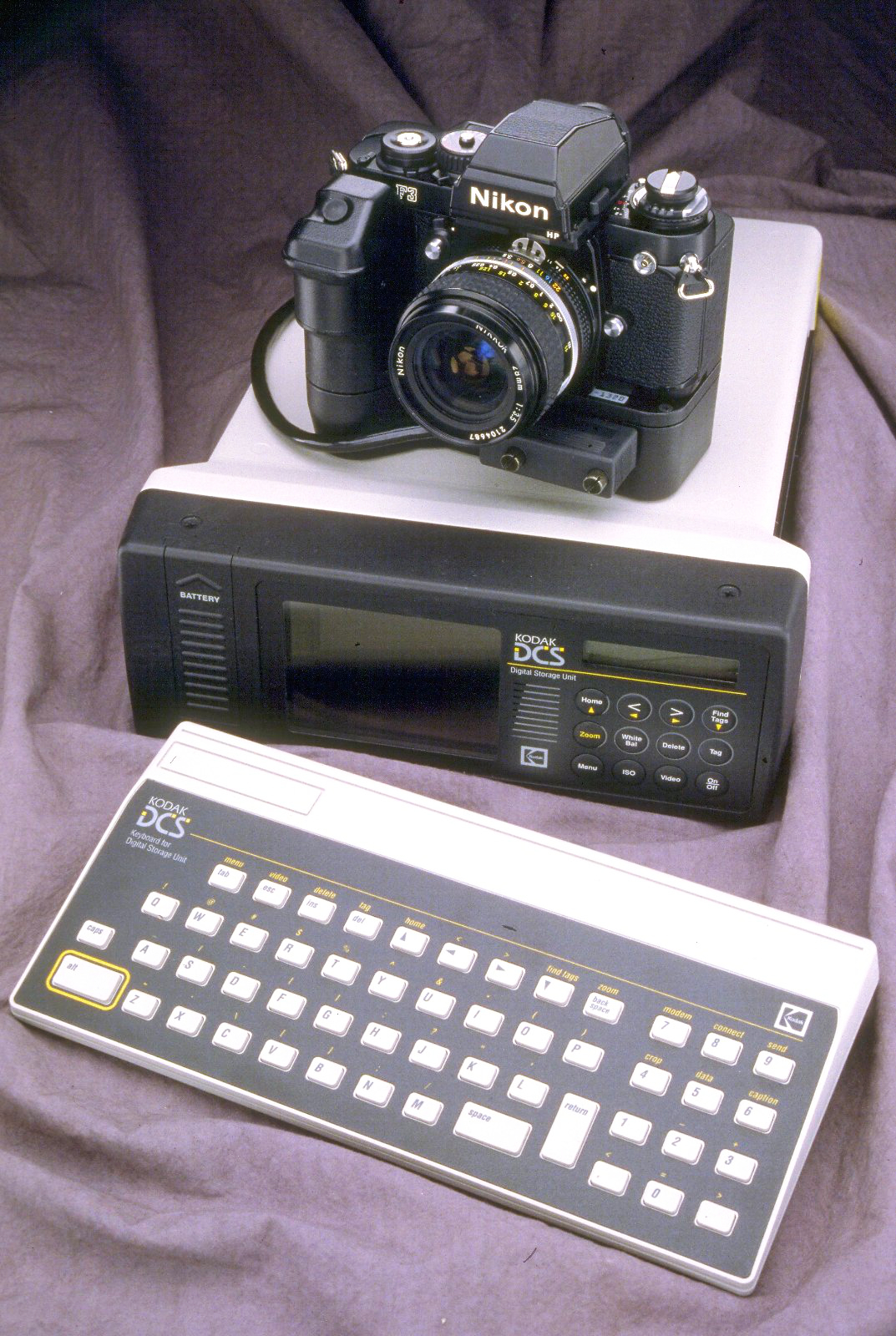
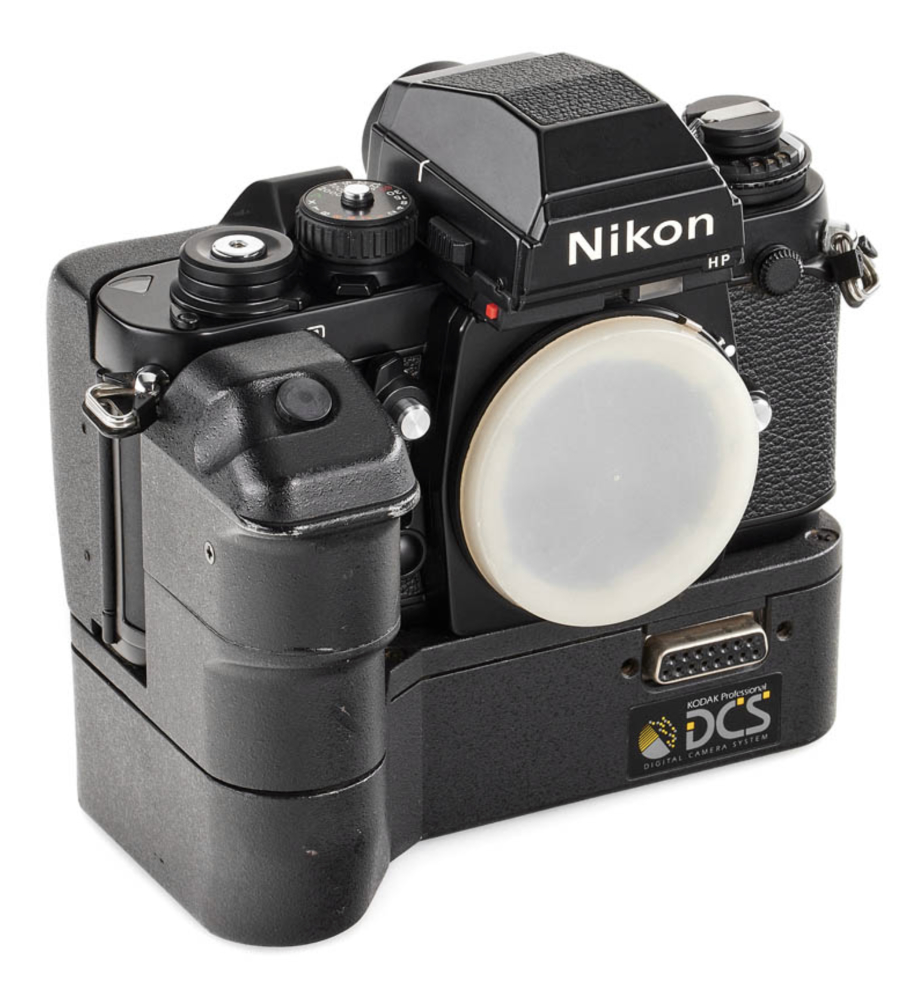
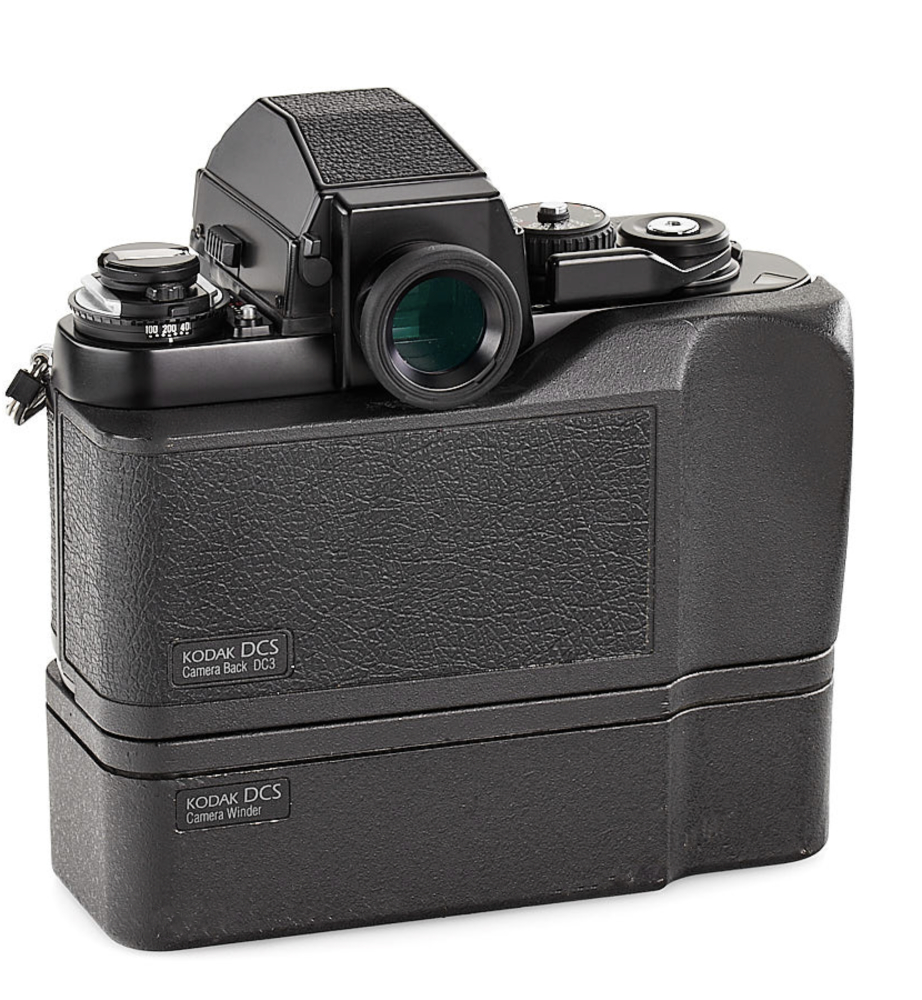

https://petapixel.com/kodak-dcs-history/
https://www.digitalkameramuseum.de/en/cameras/item/kodak-professional-dcs
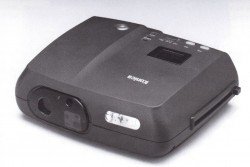

KONICA KC-DX1 - 1991. Digital camera prototype similar to the KC-32A above. Photo first shown in French computer magazine SVM (Science & Vie Micro) October 1991, page 53. 400K pixel CCD. Fixed-focus 10mm f/4 lens. Playback capabiity and .9-inch color liquid-crystal display monitor on top. It could store up to 10 high quality digital images on its microchip-based memory card. .9-inch color LCD on top for viewing photos taken. Popular Photography, January 1991, p55. NOT MARKETED.
https://www.digitalkameramuseum.de/de/prototypen-raritaeten/item/konica-kc-dx1-2
_q&sig=ACfU3U2sUqPMEKW9JIauLsRsJq4gLxxt0A&hl=en&sa=X&ved=2ahUKEwisro-
Bp771AhUfCTQIHVK6BWkQ6AF6BAgDEAM#v=onepage&q=KONICA%20%2B%20%22KC-32A%22&f=false
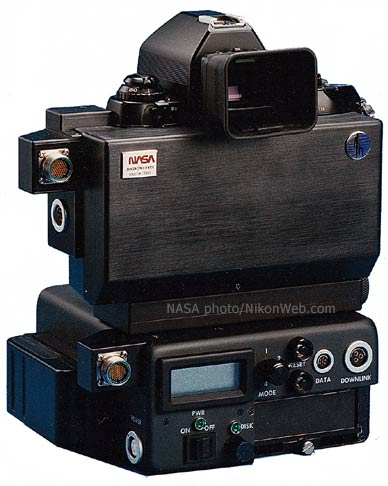
NIKON NASA F4 - 1991. A modified Nikon F4 was first flown into space on board the Space Shuttle Discovery in September 1991. The standard Nikon F4 film body was converted to digital by placing a one megapixel monochrome CCD at the film plane. The battery-operated Electronic Still Camera (ESC) retained all the features of the F4 camera body and accepted any lens or optics with a Nikon mount. Nikkor lenses used included a 20mm f/2.8 AF, 35-70mm f/2.8 AF, 50mm f/1.2 and 180mm f/2.8 AF. NOT MARKETED.
https://en.wikipedia.org/wiki/Nikon_NASA_F4

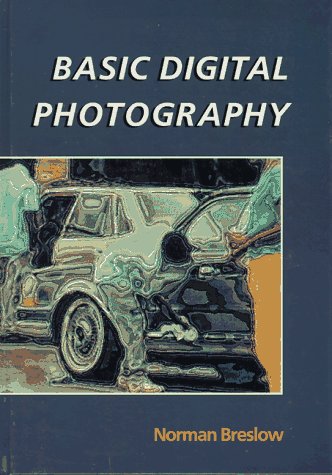

![]()
NORMAN BRESLOW, BASIC DIGITAL PHOTOGRAPHY - 1991. In 1991
Norman Breslow published the first book describing methods
of digitizing and altering photographs to produce original
works of art. He did this using a TARGA-16 digital
photography graphics board which could create an image with over 32,00
colors, a great deal more than other graphics boards at that
time. Breslow's works of art are of historic value
because they were created manually rather than with the filter
programs available today with virtually all
imaging programs. Below are several samples of Breslow's
work. The three photos above are selfies of Breslow made by using
the techniques described in his book. Click on the reference URLs
below the photos to read more
about Norman Breslow and view many more of his historic works of art.
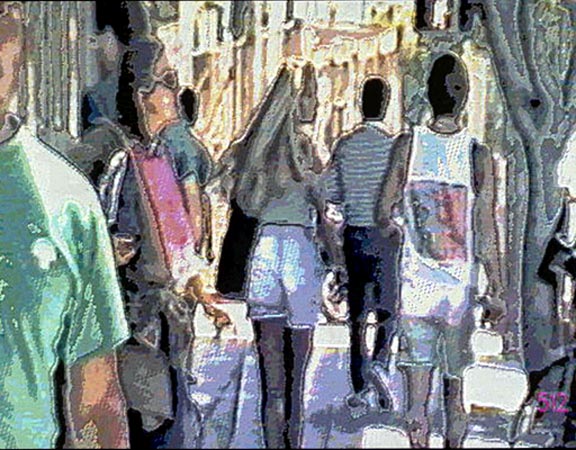
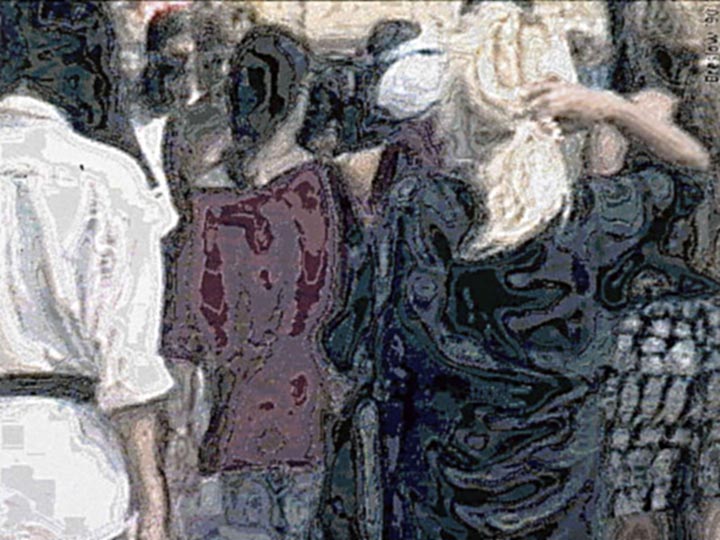
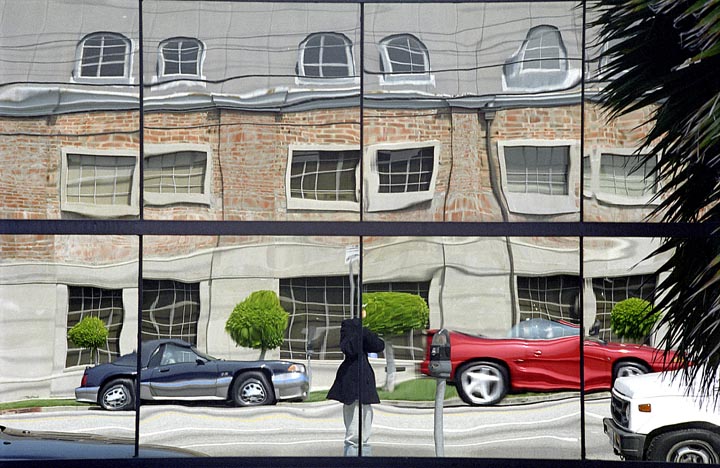

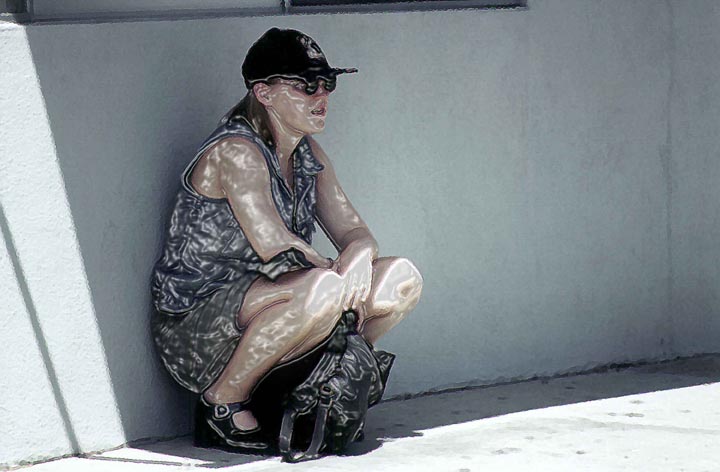
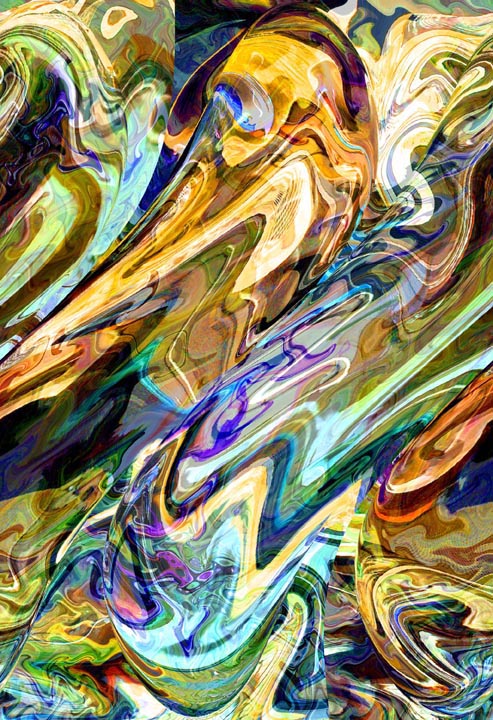
https://www.amazon.com/Basic-Digital-Photography-NORMAN-BRESLOW/dp/0240800559
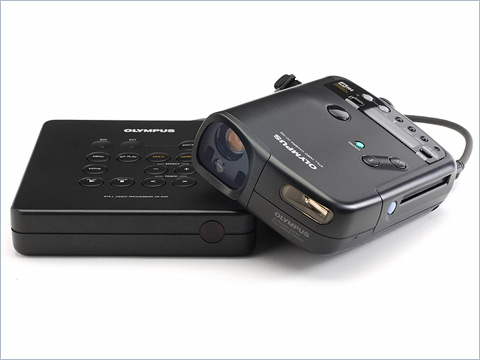
OLYMPUS
VC-100 - 1991. Still video camera. 1/2-inch 360K
CCD.
ISO 160. 10-27mm f/2.8 zoom lens. Shutter 1/30 to 1/2000
second.
Built-in flash. Hi-band still video Field and Frame modes.
Price, $1400 in Japan. Popular Photography, December
1991,
p109. NOT MARKETED.
http://camera-wiki.org/wiki/Olympus_VC-100
https://www.ephotozine.com/article/olympus-history-website-launched-2738
https://www.digitalkameramuseum.de/en/esvc/item/olympus-v100
PENTAX IQZOOM700 / ZOOM70-R- 1971. - 1991.
Manufactured by Asahi Optical Company of Japan. The IQzoom700
and the zoom70-R appear to be the same except for the countries they
were sold in (both manuals are dated 1991). The manual for the
zoom70-R states that the warranty does not apply to products purchased
in the U.S.A., U.K., or Canada. Warranties from those countries
supersede the zoom70-R warranty. Lens: power zoom 35-70mm
f/3.5-6.7. Auto focus. Shutter 1/5 second to 1/250
second.
The above camera in near mint condition was donated to
DigiCamHistory.Com by Ron Hardwick, one of Ohio's top professional golf
instructors.
http://camera-wiki.org/wiki/Pentax_IQZoom_700
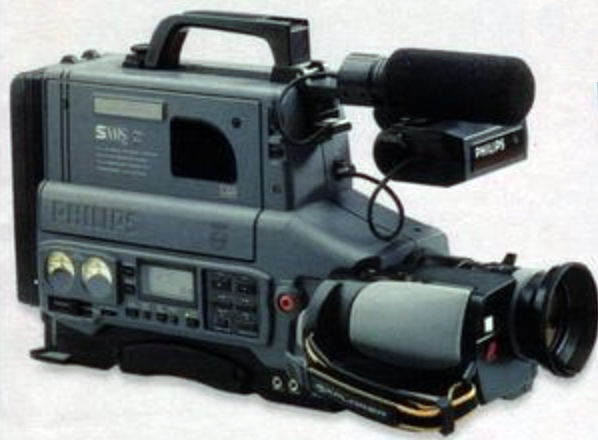
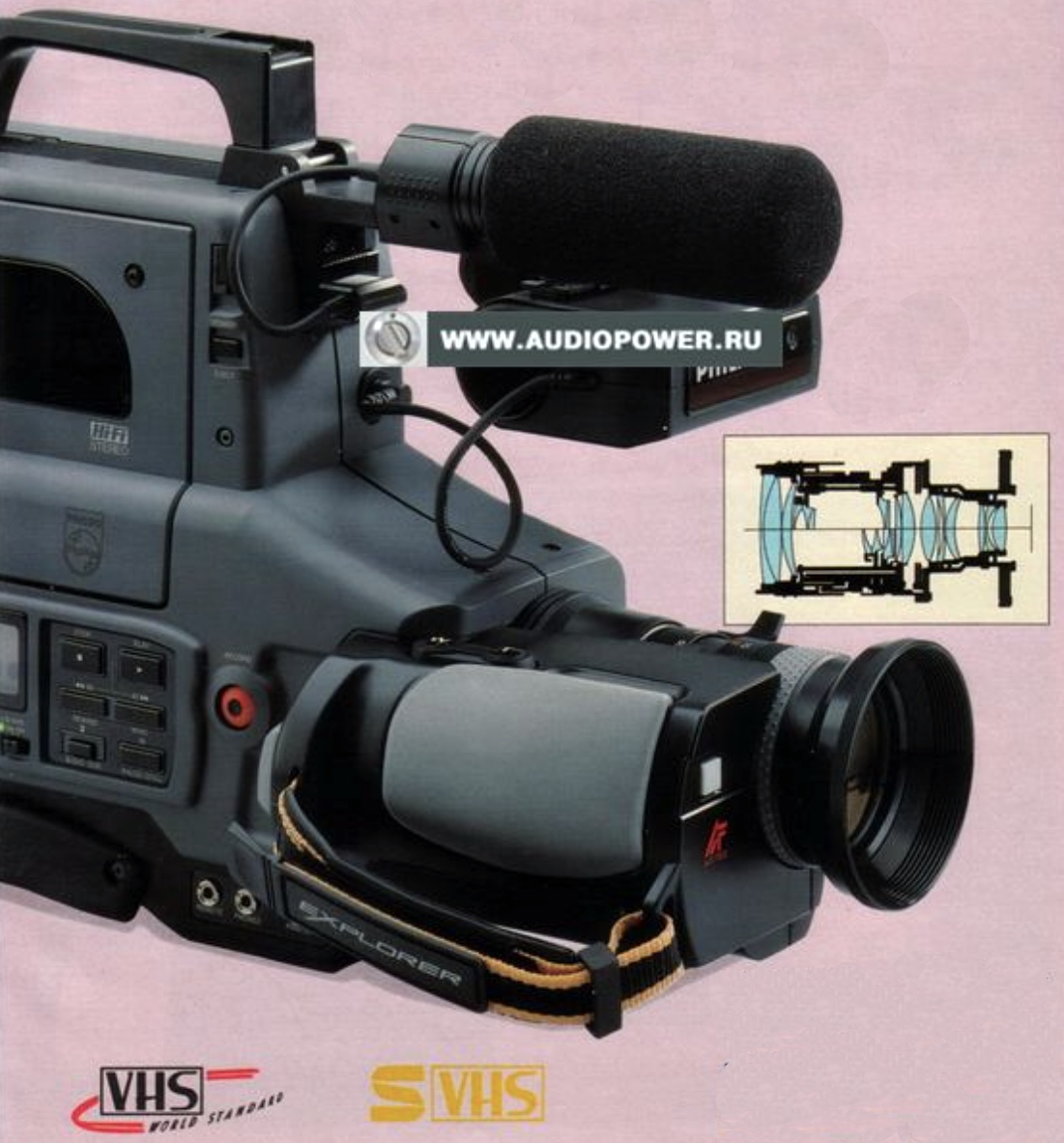
PHILIPS EXPLORER VKR 9550 Pro - 1991.
In 1991 Philips introduced the VKR 9550 (S-VHS PA) , a combination
camcorder and still video camera. Using the ESP "Electronic Still
Picture" mode in the camcorder and SPR 6400 still video printer, it was
possible to print any image from the tape in still video's highest
quality "frame" mode. The 9550 recorded complete frames every
l/25th of a second, which it then divided into a pair of fields for TV
playback. VITC code was used to access the individual frames for
replay. The result was a doubling of definition assisted by its 2/3"
sensor chip. Popular Photography February 1991, page 52.
ELECTRONICS Australia, December 1991, page 21.
1991&source=bl&ots=tA6O5019Yp&sig=ACfU3U0iuF8oDXS6kyeSc91HK4rzUV_
ENA&hl=en&sa=X&ved=2ahUKEwiJ7bGzq771AhUSj4kEHXfJCx8Q6AF6BAgnEAM#v=onepage&q=
PHILLIPS%20EXPLORER%20VKR%209550%20Pro%20%2B%201991&f=false
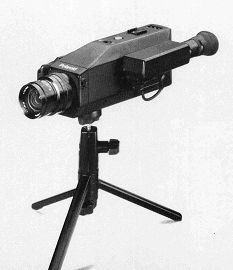
POLAROID G CAMERA - 1991.
Color version of the 8801 HiRes 1988 camera. G camera for
graphics, put a high resolution image directly onto a computer. Popular Photography, January
1991, p55. Photo provided by Richard Kee who was Director,
Electronic Imaging, of the group at Polaroid that developed the 8801
system. (lAlso see Larish, John J. Understanding Electronic photography, 1990, page 99. NOT MARKETED.
https://www.digitalkameramuseum.de/en/esvc/category/polaroid-3
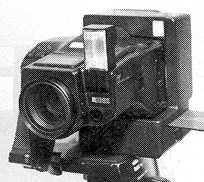
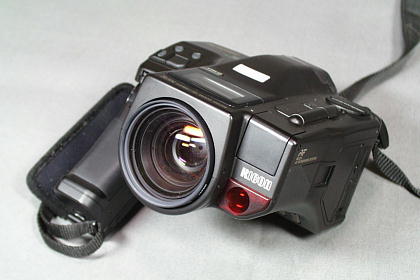
![]()
RICOH
Digital Back - 1991. Shown on Ricoh
Mirai camera front. Demonstration model only. Another example of a professional studio
camera
consisting of a film camera front and a digital back. Popular
Photography, January
1991, p55. NOT MARKETED.
http://www.australianphotography.com/gear/top-10-weirdest-camera-designs-of-all-time
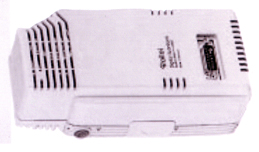
ROLLEI Digital ScanPack - 1991. Rollei
entered digital photography with the Rollei Digital ScanPack (right)
for the Rolleiflex 6008. Attached in the place of an interchangeable
film back, the images were 5850 x 5000 pixels (29.25MP), a very high
resolution for that time. MSRP for the ScanPack: $19,000.
http://www.camerapedia.org/wiki/Rollei
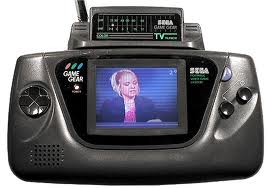
![]()
SEGA GAME GEAR - 1991. My daughter, Tatiya, donated her Game Gear to the collection, but as usual, she had lost the manual so that it was necessary for me to purchase a copy on eBay. Keep your manuals folks - you need them to operate your equipment properly and you may get more for it when you sell it because buyers don't want to have to pay extra to go on eBay to purchase the manual! The Sega Game Gear is an 8-bit handheld game console released by Sega in 1990 in Japan, and1991 in North America and Europe, and Australia in 1992. As part of the fourth generation of gaming, the Game Gear primarily competed with Nintendo's Game Boy, the Atari Lynx and NEC's TurboExpress. The handheld shares much of its hardware with the Sega Master System and is able to play its own titles as well as those of the Master System, the latter being made possible by the use of an adapter. Containing a full-color backlit screen with a landscape format, Sega positioned the Game Gear as a technologically superior handheld to the Game Boy.
http://en.wikipedia.org/wiki/Sega_Game_Gear
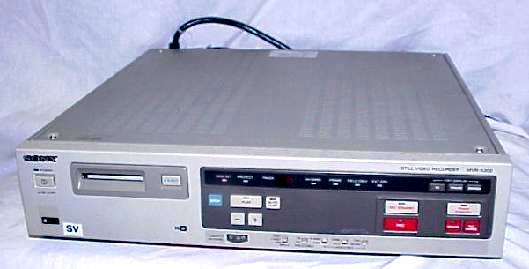
![]()
SONY MVR-5300 - 1991. The
MVR-5300 was a typical still video image recorder/player of the still
video (analog) era (MSRP $4,950 = $8,250 in 2011 dollars). It recorded
and played back up to 25 full frame (or 50 field) images on a 2-inch
still video mini diskette. Horizontal resolution of 500 TV lines due to
the Hi-band recording format. RS-232C computer interface.
Shown below is a Sony MVR-5400 ($5,000 MSRP), also of 1991, and two Konica KR-400 ($2,000 MSRP)
still video recorders of the same era.
http://www.profilesinhistory.com/flipbooks/A93DR_CF/files/basic-html/page114.html
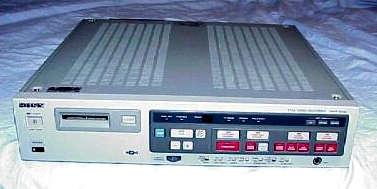
![]()
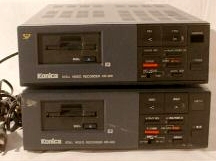
![]()
SONY MVR-5400 - 1991 KONICA KR-400 - 1987
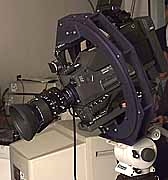
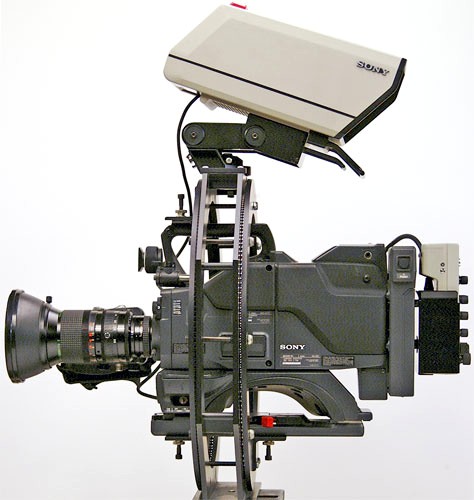


SONY SEPS-1000
DIGITAL STUDIO CAMERA - 1991. SEPS-1000
(Sony Electronic
Photography System)
Shown in mounting bracket for studio portrait work. Three CCDs and optical beam splitter (first),
2476 x 1108 pixels. Used Sony's on-chip micro lens system (first) to
concentrate light doubling light sensitivity to ISO 400. Northrop
Corporation adopted the Sony Electronic Photography System eliminating
the use of 1.2 million gallons of water for processing photos as well
as the electrical energy required to heat the water to 90 degrees.
Additionally, more than 5000 gallons of hazardous waste per year was
eliminated with a dollar savings of about $1 million annually. Digital
Photography: Pictures of Tomorrow, John J. Larish, 1992, p13.Price,
$29,995.
http://www.epi-centre.com/reports/9311ed.html
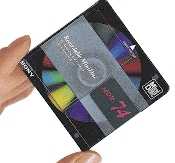

![]()
MINIDISC
- 1991. MiniDiscs were announced in 1991
by Sony as a disk-based digital medium for recording and distributing consumer
audio that is near CD in quality. The Minidisc was developed
as a recording and playback device that would use a disk smaller than the CD
to replace
the audio compact cassette. We
http://www.minidisc.org/sony_announcement.html
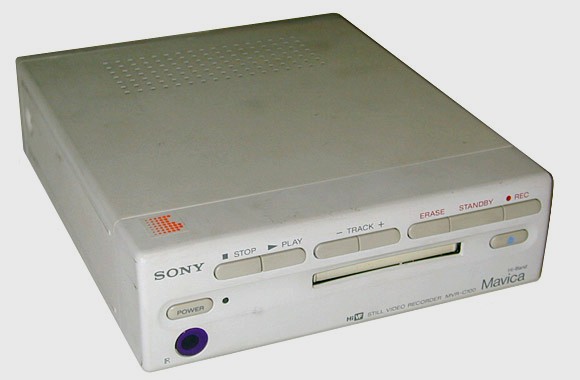
SONY MVR-C100
- 1991. Consumer still video player/recorder.
RGB Sync output for direct connection to computers with image capture boards.
MSRP $1150. Popular Photography, June 1991, p73.
https://books.google.com/books?id=nfLx2Fbm0_4C&pg=PA73&lpg=PA73&dq=SONY+%2B+%22MVR-C100%22&source=bl&ots=tA4N18-fYm&sig=ACfU3U3552Aat6WhydNRLgByOJJtrdiXeg&hl=en&sa=X&ved=2ahUKEwigv
qj-5tHwAhVCXM0KHb28AHIQ6AEwEHoECBEQAw#v=onepage&q=SONY%20%2B%20%22MVR-C100%22&f=false (PopularPhotography,June 1991, page 73).
https://selectbutton.net/t/output-devices/6801/194?page=10
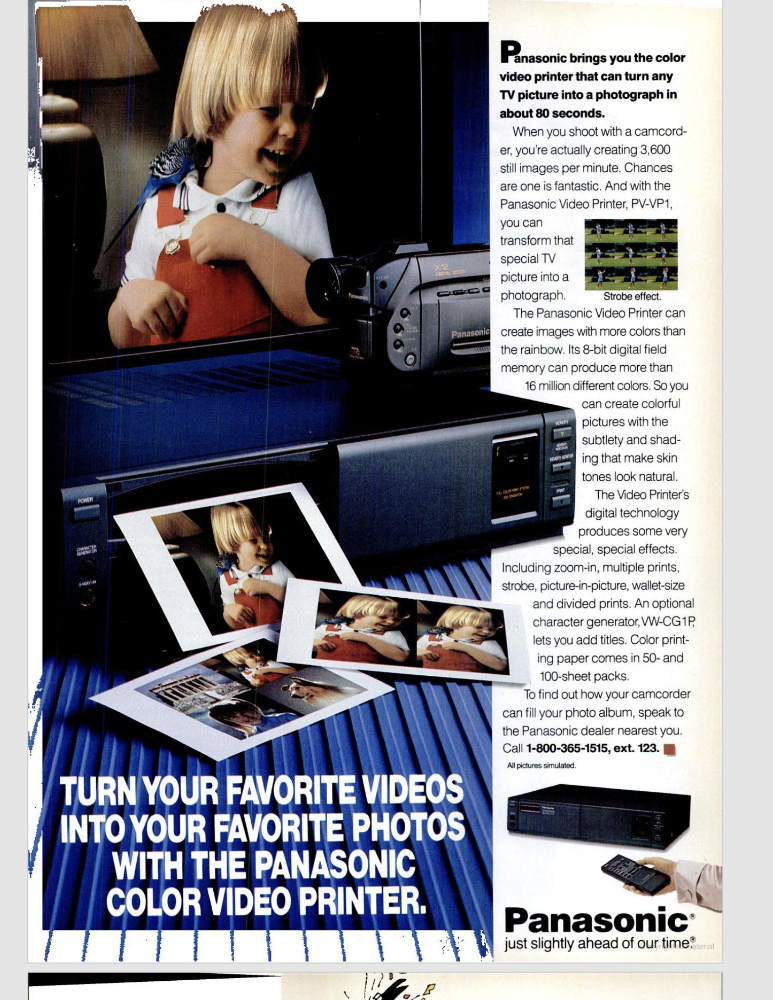
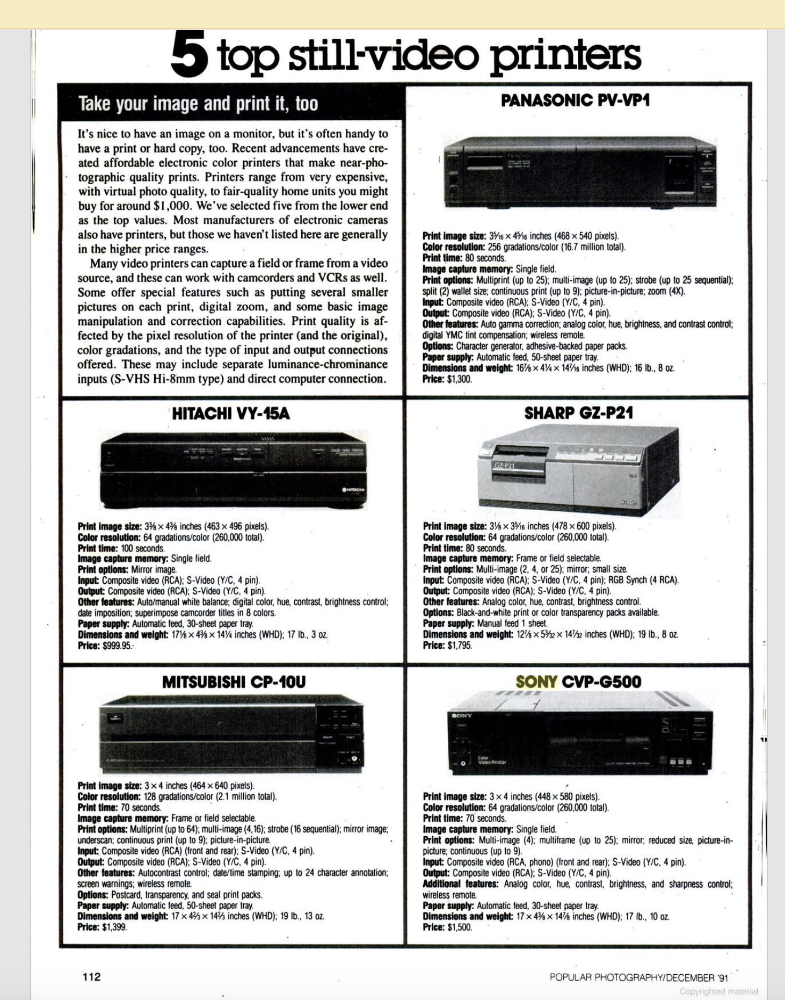
STill VIDEO PRINTERS - 1991.
In the early days of electronic photography (analog still video or
digital) manufacturers came out with a variety of ways to print color
digital photos. A number of brands produced 'still video
printers' which could capture frames from camcorders and VCRs and
convert the images into digital foremat for print purposes. The
upper left photo is an ad for the Panasonic PV-VP1 which listed for
$1,300. The photo on the right is from a December 1991 Popular
Photography article which discussed five of the 'most affordable'
models on the market with prices ranging from $999.95 to $1,795.
Pixel size varied from 448 vertical to 640 horizontal and all produced
prints in the 3 x 4-inch range. Popular Photography, December
1991, page112. See 1990 page for Sony CVP-G500 in collection.
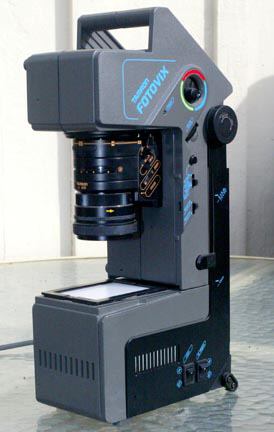

![]()
TAMRON FotoVix
- 1991 An unusual type of video camera.
The
FotoVix converted negatives or slides into NTSC video output for
viewing on a TV monitor or recording to tape, but could also scan small
objects. Stills could be viewed on a PC through use of a video
capture device. CCD of approximately 410K pixels. Quality
of stills was reported to be relatively poor. Discontinued in
2000. MSRP $1149.
https://www.tamron.com/global/company/tamron_history_courses.html
https://geoffthompsonsblog.blogspot.com/2018/05/the-tamron-fotovix-shape-of-things-to.html
https://digital.deutsches-museum.de/de/digital-catalogue/collection-object/2004-621/
1991